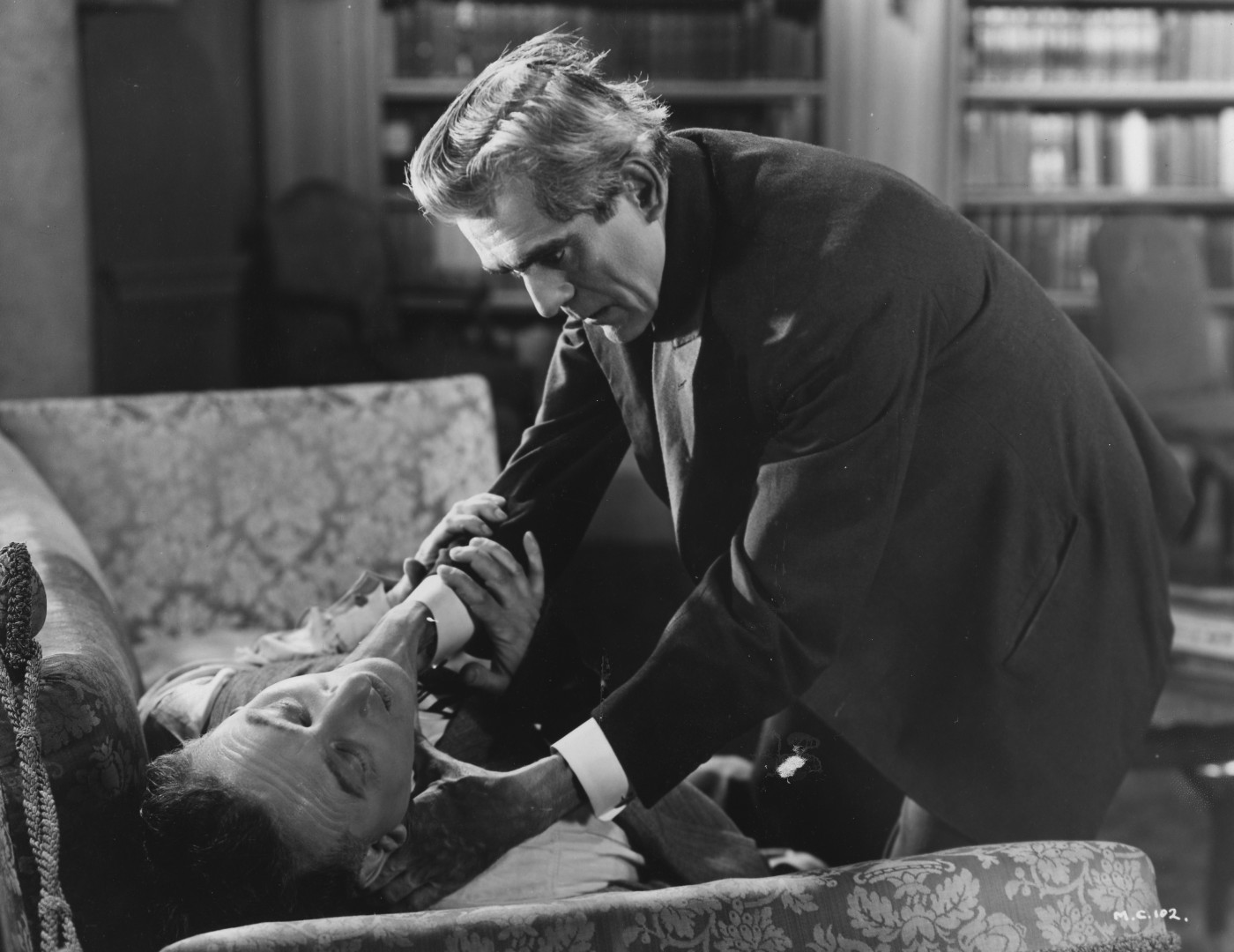
Midnight Screenings 2008 / The Man Who Changed His Mind / United Kingdom 1936
A brain specialist builds a machine to move the mind of one person into the body of another, and uses the invention for his own sinister ends. Robert Stevenson’s stylish, fast-paced sci-fi thriller sees the great Boris Karloff in one of the first and best of his many ‘mad scientist’ roles.


A brilliant brain specialist discovers how to move the mind of one person into the body of another and decides to use the invention for his own sinister ends. After some excellent American horrors, Boris Karloff returned to England to make The Man Who Changed His Mind. Directed with panache by Robert Stevenson, the film blends dramatic horror and playful character comedy. In what became the blueprint for many ‘mad scientist’ roles, Karloff flits effortlessly between warmth and menace. So adept was he at playing gifted, unstable scientists, touched by genius, but tinged with madness, that he was still doing variations on the theme thirty years later. Anna Lee commands a strong role – highly unusual for a leading lady in 1930s horror cinema – as a feisty scientist who doesn’t need a man to tell her how to do an experiment. Beautifully finished off with impressive sets and moody, expressionistic lighting, The Man Who Changed His Mind easily ranks alongside Karloff’s better-known American horror classics.
66 min / Black & white, 35 mm
Director Robert Stevenson
/ Screenplay L. DuGarde Peach, Sidney Gilliat, John L. Balderston
/ Dir. of Photography Jack Cox
/ Music Louis Levy
/ Editor R.E. Dearing, Alfred Roome
/ Producer Michael Balcon
/ Production Gainsborough Pictures
/ Cast Boris Karloff, John Loder, Anna Lee, Frank Cellier, Donald Calthrop
/ Contact BFI, Park Circus Group

Robert Stevenson (b.1905, Buxton, Derbyshire; d. 1986) was once hailed by Variety as “the most commercially successful director in the history of films.” Employed by a newsreel agency before becoming a scriptwriter for Gaumont-British and Gainsborough Studios, he also worked abroad on UFA co-productions, achieving a directorial credit on Happy Ever After (1932). Acclaim for his Tudor Rose (1936) led him on to direct a variety of costume dramas and thrillers, the effectiveness of which often belied their low budgets. In America he had the opportunity to work on larger scale productions such as Jane Eyre (1943), before moving into television, directing episodes of Alfred Hitchcock Presents. Lured back to film by Walt Disney in the 1950s, he helmed numerous highly successful Disney productions including Mary Poppins (1964) and The Love Bug (1968).
BFI
21 Stephen Street, W1T 1LN, London
United Kingdom
Phone: +44 207 255 1444
Fax: +44 207 436 7950
E-mail: [email protected]
Park Circus Group
15 Woodside Crescent, G37UL, Glasgow
United Kingdom
Phone: +44 141 332 2175
E-mail: [email protected]

Vic Pratt
Film Institution Rep.
First-hand brews throughout the year.
Be among the first to learn about upcoming events and other news. We only send the newsletter when we have something to say.